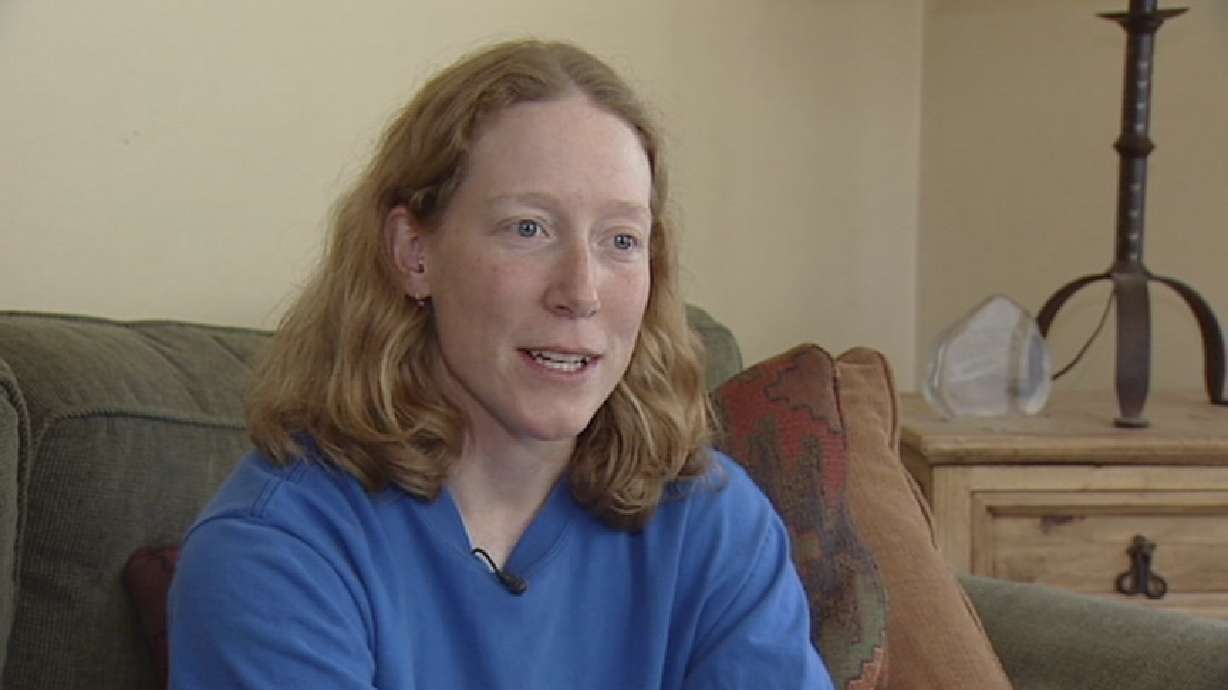Estimated read time: 3-4 minutes
This archived news story is available only for your personal, non-commercial use. Information in the story may be outdated or superseded by additional information. Reading or replaying the story in its archived form does not constitute a republication of the story.
Shelley Osterloh ReportingEvery athlete has a story, a past, something that has made them who they are. But not all stories are happy or easy to talk about. Still, an Olympic gold medal speed skater is doing just that and she's hoping her story can help others.
Chris Witty moved to Utah in 1999 to train for the 2002 Olympics. A month before the games began, Witty felt herself falling apart. Doctors diagnosed her with mononucleosis, which made her tired all the time.
Beyond her physical sickness, Witty says she was suddenly flooded with emotions that stemmed from a painful past of sexual abuse. Witty was just four-years-old, growing up in Milwaukee, when a man who lived in the neighborhood began abusing her. The abuse continued until she was 11. That's when she finally got the courage to tell her abuser, no.
Chris Witty, US Speedskater, July 2005: "When I was a kid, I watched a program in school. I didn't know it had a name, I didn't know what it was, I knew it was wrong and I learned I could say no."
Even though the abuse stopped, Witty still kept it a secret. Then in 1996, the same man who abused Witty pleaded guilty to molesting another child and was sentenced to prison. Witty says she struggled with her old memories for the next year, but became even more determined in her skating career.
She quickly climbed the skating ranks and became one of the toughest speed skaters in the world. Then, just before the 2002 games began, Witty got news that her abuser was free.
Chris Witty: "That's when I was sort of realizing, 'Okay, this guy is still alive and out there and nobody's watching him.'"
Witty decided it was time to talk to someone. She called a sports psychologist and told him about her past that she had kept a secret for more than 15 years. The two of them decided she should focus on the 2002 Olympics, but then after the games, address her memories head on.
Chris Witty: "Salt Lake has to be the moment I'm most proud of. It's the race itself, but it's also everything leading into the Olympics. And being able to just take a lot of personal issues, physical, mental, emotional, family issues and put them aside and just focus on my event and pull it all together at the right moment."
After taking home the gold in the 1000 meter race, Witty got some long overdue therapy and dealt with her past.
Chris Witty: "People say it never goes away, and i think there's some truth to that. It will never go away but it will get better."
Now she is telling her story and hoping she can help to empower other victims of abuse.
Chris Witty: "They can also have a person to relate to and say, 'Okay, this is a real thing that happens and look at that person. Well, we look at her as a hero and it happened to her and she's gone on to do great things.'"








